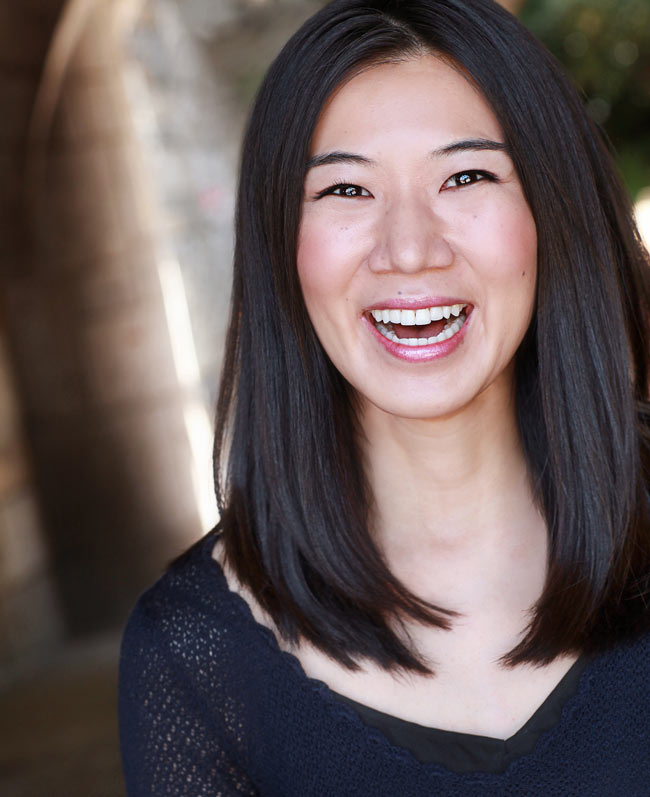
Where are you from (originally and currently)?
Born in Seoul, raised in various East Coast suburbs. Currently: Harlem.
When was the first moment you considered yourself a playwright/writer?
When I was twelve years old I tried to write a novel. Around page eight, I ran out of story, so I figured I wasn’t a writer. When I was a senior in college, I wrote a play for my thesis, but didn’t really have anything beyond that one story — so I figured I wasn’t a writer. Even after I started writing more regularly, I still thought of myself as an actor who happened to have written a play or two. Back then, I thought writers were some kind of impossible, mysterious other-creatures, and I would have felt presumptuous claiming the title. Versus now, when I think writers are…people who write. Because they can’t not write. So it finally feels right to call myself a writer — writing is still impossible and mysterious, but I’m going to keep doing it anyway.
What are you most interested in exploring through your playwriting right now?
Thematically, there will always be things that crop up, whether I want them to or not: identity, immigration, what I call “the spiritual cost of success.” And humor, because life is short and there are too many boring things in the world. More delight, please — not in spite of the heaviness of the world but because of it, and to illuminate through opposites. Lately I’ve been thinking a lot about playfulness in form while considering themes of aging and responsibility. This last year has felt like an overdue, often overwhelming wake-up call in so many ways. What is the place of joy and art in times like these?
How would you describe your most recent plays?
Peerless is a dark comedy about ambition and high school, loosely inspired by Macbeth and set in the world of competitive college admissions. It’s also a satire about race, identity politics, and the frightening-but-logical consequences of the messages we are sending our young people about what it takes to succeed.
Hannah is the story of a young woman searching for the meaning of a mysterious object she receives from her grandmother, right before that grandmother disappears (and perhaps commits suicide) by jumping into the Demilitarized Zone between North and South Korea. It deals with questions of family, legacy, and the need for stories from our past to help us make meaning from our present.
From where did you draw artistic inspiration for your play?
I don’t know! (See comment re: “mysteriousness” above.) After the fact, of course, I can connect some of the pieces back in an existing work and theorize where they may have come from — content-wise, it’s usually a question/emotion I was struggling to articulate and couldn’t figure out in any other way than a play. And I do go through obsessive periods of reading about things — but those topics don’t tend to literalize themselves in my work in clean ways. So the short, somewhat cliché answer: the unconscious, although I’m constantly chasing my curiosity in conscious life.
Any favorite plays or playwrights?
Julia Jarcho (I just read Grimly Handsome and flipped out), Hansol Jung’s Wild Goose Dreams, Wallace Shawn’s anything. Lloyd Suh. Paola Lazaro-Munoz. Naomi Iizuka. Annie Baker — how she manages to keep taking these dazzling, evolutionary leaps with each new play. And this isn’t a play, but the J.D. Daniels book of essays The Correspondence — I’ve read it three times this summer. That book does what all my favorite plays do: wrestles with something sharp and alive, with a quicksilver touch.
When you’re not wearing your playwright hat, how do you spend your time?
Near trees and visual art, whenever possible. I did a little writing for television (on a new Marvel show) this year and it was more fun than I expected. And once in a while, I dust off my acting hat (I’ll be performing in Naomi Iizuka’s adaptation of Haruki Murakami’s Sleep for Ripe Time, which will be at BAM Next Wave this fall and then tour).
Also, I am occasionally and compulsively struck by the urge to reupholster a piece of furniture or make an ottoman…especially if I’m stuck on a writing project, it’s nice to feel like I’m making progress on something, especially something that is simpler in its thing-ness than our very ephemeral art form.

Comedy Mysteries: Gasps, Laughs and Thrills

A Children’s Theatre Classic: An Interview with Snow White And The Seven Dwarfs Composer Michael Valenti

